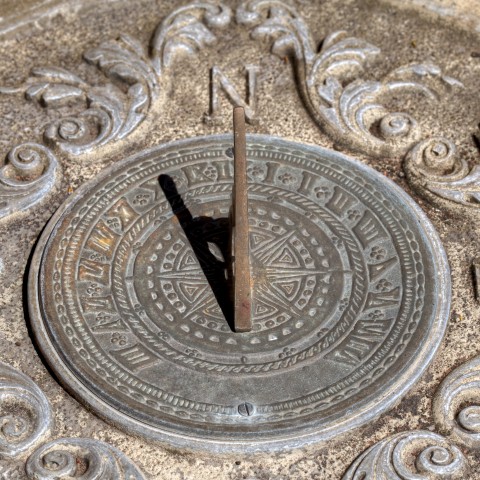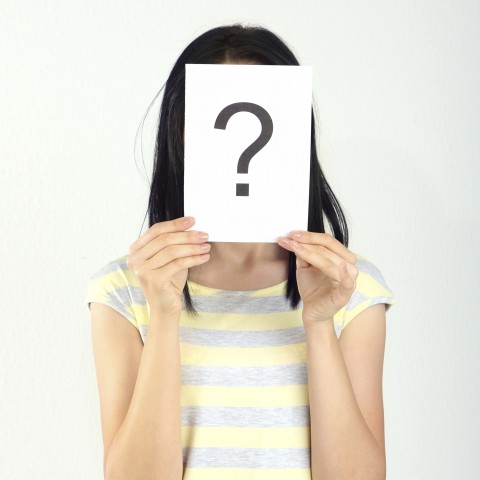Lewis Carroll, in the famous book Alice in Wonderland, wrote some of the best advice ever given: “Begin at the beginning.”
When learning Hebrew, as with any language, there’s no better beginning than learning how to say hello in Hebrew. We say hello to people all the time, every day.
Whether we want to greet a friend, start a conversation with a stranger to ask for directions, or perhaps introduce ourselves to someone we see from across the bar, knowing the right Hebrew greeting is essential!
Is the first thing that comes to your mind when you think of hello in Hebrew shalom? You’re not alone, as this is the most common and popular way to say hello in Hebrew greetings.
As in many languages, there are several different ways to say hello in Hebrew. How you say hello in Hebrew depends largely on the situation, setting, and who you’re talking to. Greetings can be formal, informal, general, situation- or time-specific, even imported from English or Arabic!
That said, how do we boil down the answer to “What’s hello in Hebrew?”
In the following lesson, we’ll take a look at these different Hebrew greetings so you can learn how to say hello in Hebrew in any situation, at any time, with confidence and comfort. Luckily, this language is generally not very grammar-intensive, so just sit back, relax, and have fun with these! Here we go!
Table of Contents
- General Greetings
- Situation-Specific Greetings
- Greetings with Questions
- Time-Specific Greetings
- How HebrewPod101.com Can Help!
1. General Greetings
Let’s begin with some general greetings. These are greetings in Hebrew that you can feel comfortable using in just about any situation. Before we dive in, however, it’s well worth mentioning that modern Hebrew—unlike Biblical Hebrew—doesn’t make very much use of formalities in spoken conversation.
That being said, it’s best to avoid too much informality with the elderly or people of authority (such as police officers). In other words, the baseline of Hebrew is neither formal nor informal.
This is exactly the way we could describe the most well-known Hebrew word for hello: שלום (shalom). Most of us know that this word means “peace.” However, it’s also the most classic of Hebrew greetings. It’s neither formal nor informal, and you can use it both to say hello and goodbye in Hebrew, to anyone! Let’s take a look.
- שלום
Shalom
Hello / Goodbye [literally “Peace” when translated] - שלום! אני מרגרט.
Shalom! Ani Margaret.
Hello! I’m Margaret. - שלום! נתראה מחר.
Shalom! Nitra’eh machar.
Goodbye! See you tomorrow.
Note that if we use this word twice in a row, it can be used to add emphasis and warmth to our greeting:שלום, שלום. For example, if you want to say “Hello, friend” in Hebrew or even “Hello and welcome,” in Hebrew, this is a great way to go about it.
- שלום, שלום, חברים. בואו כנסו.
Shalom, shalom, chaverim. Bou kansu.
Well, hello, friends, come on in.
This next one is taken straight from English, so it should be a piece of cake for you!
- היי
Hay
Hi - היי, אני שלי. איך קוראים לך?
Hay, ani Sheli. Eykh korim lekha?
Hi, I’m Shelley. What’s your name?
The last common greeting we’ll look at is taken from Arabic. It’s used as a Hebrew slang for hello, so, while it will impress your Israeli friends, it’s best to avoid using it in formal settings.
- אהלן
Ahalan
Hey
Here’s how you would use this slang word to say “Hello brother,” in Hebrew:
- אהלן, אחי! איזה טוב שבאת!
Ahalan, achi! Eyzeh tov she-bata!
Hey, brother. It’s great that you came!
2. Situation-Specific Greetings
Now that we’ve seen some general greetings, let’s have a look at greetings appropriate to specific situations. Just remember that you want to be sure you use them in the correct setting.
The first one we’ll look at is a greeting that’s commonly used when we’re welcoming someone, for example, as a guest in our home or perhaps an invitee to a party we’re hosting.
This greeting, ברוך הבא (barukh haba) literally means “Blessed is he who comes.” However, its connotation is akin to “Welcome.” Apart from the uses mentioned above, it can also be used in a more general sense if we’re simply welcoming someone who arrived from somewhere else. Note that it’s necessary to use the correct grammar in terms of masculine/feminine and singular/plural.
- ברוך הבא.
Barukh haba.
Welcome. [speaking to men] - ברוך הבא. זה הבית שלנו.
Barukh haba. Zeh habayit shelanu.
Welcome. This is our home. - ברוכה הבאה.
Brukha ha-ba’ah.
Welcome. [speaking to a woman] - ברוכה הבאה. זה הבית שלנו.
Brukha ha-ba’ah. Zeh habayit shelanu.
Welcome. This is our home. - ברוכים הבאים.
Brukhim ha-baim.
Welcome. [speaking to men or a mixed group] - ברוכים הבאים. זה הבית שלנו.
Brukhim ha-baim. Zeh ha-bayit shelanu.
Welcome. This is our home. - ברוכות הבאות.
Brukhot ha-ba’ot.
Welcome. [speaking to women] - ברוכות הבאות. זה הבית שלנו.
Brukhot ha-baot. Zeh ha-bayit shelanu.
Welcome. This is our home.
The next situational greeting we’ll see is used when answering the telephone. You may notice that this greeting is basically just a hebraicized version of “hello” in English. Allow yourself to chuckle at the sound of it, but remember that if you really want to sound like a native speaker, this is the way Israelis answer the phone!
- הלו?
Halo?
Hello? [when answering the telephone] - הלו? עם מי אני מדברת, בבקשה?
Halo? Im mi ani medaberet, bevakashah?
Hello? With whom am I speaking, please?
3. Greetings with Questions
The next category of greetings we’re going to look at are greetings with questions. Just like in English, there are quite a number of greetings that incorporate questions. These can either be used straight off the bat to greet someone, or can follow one of the general greetings we learned earlier, such as שלום (shalom) meaning “hello” or היי (hay) meaning “hi.” For example, you could use these phrases to say “Hello, how are you?” in Hebrew.
1- More Formal
- מה שְׁלוֹמְךָ?
Mah shlomkha?
How are you? [speaking to a man] - מה שלומך? שנזמין שולחן?
Mah shlomkha? She-nazmin shulchan?
How are you? Should we get a table? - מַה שְּׁלוֹמֵךְ?
Mah shlomekh?
How are you? [speaking to women] - מה שלומך? שנזמין שולחן?
Mah shlomekh? She-nazmin shulchan?
How are you? Should we get a table? - מַה שלומכם?
Mah shlomkhem?
How are you? [speaking to men or a mixed group] - מה שלומכם? שנזמין שולחן?
Mah shlomekhem? She-nazmin shulchan?
How are you? Should we get a table? - מַה שלומכן?
Mah shlomkhen?
How are you? [speaking to women] - מה שלומכן? שנזמין שולחן?
Mah shlomkhen? She-nazmin shulchan?
How are you? Should we get a table?
2- More Informal
Note that the following greetings are more informal, and should generally be used with people you’re already familiar with. These are phrases like “Hello, what’s up?” in Hebrew.
- מה נשמע?
Mah nishma?
What’s up? - מה נשמע? איך העבודה החדשה?
Mah nishma? Eykh ha-avodah ha-chadashah?
What’s up? How’s the new job? - מה חדש?
Mah chadash?
What’s new? - מה חדש? כבר מצאתם דירה?
Mah chadash? Kvar matzatem dirah?
What’s new? Did you find an apartment yet? - מה קורה?
Mah koreh?
What’s happening? - מה קורה, גבר? שנים שלא ראיתי אותך!
Mah koreh, gever? Shanim she-lo ra’iti otkha!
What’s happening, man? I haven’t seen you for ages! - מה העניינים?
Mah ha-inyanim?
What’s going on? - היי, שלומית! מה העניינים? יש חדשות לגיי החתונה?
Hay, Shlomit! Mah ha-inyanim? Yesh chadashot le-gabey ha-chatunah?
Hey, Shlomit! What’s going on? Any news on the wedding? - מה המצב?
Mah ha-matzav?
What’s up? - מה המצב, איילת? למה לא באת לשיעור?
Mah ha-matzav, Ayelet? Lamah lo bat la-shi’ur?
What’s up, Ayelet? Why didn’t you come to class?
4. Time-Specific Greetings
The final category of greetings we’re going to see today are greetings that make reference to the time of day. Just as in most languages, it’s very common to greet people in such a time-specific way. Just as with the greetings that use questions, you can use the following greetings either by themselves or after using one of the general greetings we saw at the beginning of the lesson.
The phrases we’ll go over in this section include things like “Hello, good day,” in Hebrew and “Hello, good morning,” in Hebrew.
- בוקר טוב.
Bokher tov.
Good morning. - בוקר טוב! בא לך קפה?
Bokher tov! Ba lekha kafeh?
Good morning! Would you like coffee? - צהריים טובים.
Tzohorayim tovim.
Good afternoon. - צהריים טובים לכם. המונית שלכם מחכה בחוץ.
Tzohorayim tovim lakhem. Ha-monit shelakhem mechakah bachutz.
Good afternoon to you. Your taxi is waiting outside. - ערב טוב.
Erev tov.
Good evening. - ערב טוב. אני מקווה שתנוחו, ונתראה מחר!
Erev tov. Ani mekaveh she-tanuchu, ve-nitraeh machar!
Good evening. I hope you rest, and see you tomorrow!
Note that, much like in English, לילה טוב (laylah tov) or “good night” is used not as a greeting, but rather as a farewell.
5. How HebrewPod101.com Can Help!
How to say hello in Hebrew isn’t too hard, right?
As you can see, there are quite a few ways to say hello in modern Hebrew, so definitely get some practice in on these and use them to spice up your Hebrew! We’re here to help your practice, so that you can enrich your language ability and boost your confidence, right from the first hello!
Remember that, as mentioned earlier, we Hebrew-speakers are generally not very formal when speaking on the street or among friends and family, so don’t feel uncomfortable giving a casual hello in Hebrew with people your age or people you already know! Just practice a few that you like and start using them as you greet Hebrew speakers.
I hope you found this lesson helpful and fun. Feel free to check in and let us know if you feel confident about saying hey in Hebrew, or if you need some more tips! We look forward to hearing from you, and hope that you’ll continue visiting HebrewPod101.com on your journey to language mastery! Shalom!














